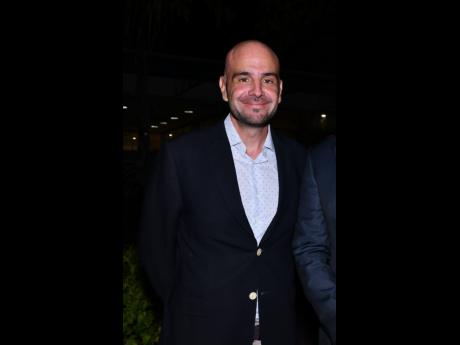Cement market resilient
Caribbean Cement Company Limited may resume cement exports to the region, but says if it does, it won’t be at the expense of the Jamaican market.
The cement producer supplies the bulk of the local market from its production facility at Rockfort in Kingston. When the local market softens, it tends to look for supply deals with neighbours.
“Export is something we will be considering, but it will always come behind the local market, which we prioritise,” said General Manager Yago Castro in response to queries at the company’s virtual annual general meeting on Thursday.
Castro said the Rockfort plant has excess capacity, despite sustained local demand for cement even during the pandemic.
“The good thing is that we have some production capacity surplus, so, eventually, if the local market allows us, then we can allocate different amounts to the export markets,” he said.
Caribbean Cement made a profit of $521 million in the June quarter, up from $369 million a year earlier. The gain was due to a two per cent increase in sales, from $4.7 billion to $4.8 billion, as well as lower debt financing charges due to a reduction in its US dollar debt.
“While it is still very early to fully evaluate the long-term effects of COVID-19 on our operations, we believe that this event has made us a stronger and more efficient organisation, which is a testament to the resilience and commitment of our employees and the robustness of our systems and operations,” Caribbean Cement said in its financial report.
The company, which distributes under the Carib Cement brand, is proceeding with its capital projects, with much of the expenditure geared towards improving the facilities.
“Capital expenditure for the platform is basically US$8 million to US$10 million a year. That is a number that can go up or down,” said Castro at the meeting.
“We are doing several things all around the plant, from the quarries to the packaging plant, and most of these projects are platform capex projects which mainly relate to upgrading the facilities,” he said.
Caribbean Cement has invested more than $20 billion on capital projects in the past five years, said Castro, adding that few companies can match that spend.
Last year, the company’s capex was $1.3 billion, which included setting up four jumbo loaders, upgrading the kiln to improve airflow, and new palletisers. The year before that, Caribbean Cement spent $16.6 billion, which largely related to setting up a coal mill and modernisation of the packing plant.
A large local cement buyer told the F inancial Gleaner this week that cement demand remains high despite COVID-19. He that in order to source hundreds of bags daily, it requires his drivers to sleep overnight at the Rockfort plant in order to get in line early for the daily supply.
Castro told shareholders that the company has revamped its distribution methods, which now better facilitates small buyers collecting supplies directly from the plant. Consequently, direct deliveries rose from 45 per cent to 52 per cent last year, while small deliveries climbed from 2.1 per cent to 10.1 per cent. Castro also indicated that the new Carib Cement packaging offers a third layer of paper protection, up from two layers, leading, he said, to fewer complaints about burst bags.

